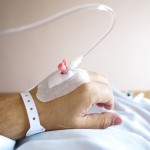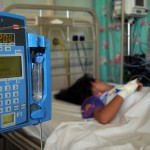
Charlotte Huggett reviews a recent Canadian population-based cohort study, which examines rates of suicide and self-harm in adult survivors of critical illness.
[read the full story...]
Charlotte Huggett reviews a recent Canadian population-based cohort study, which examines rates of suicide and self-harm in adult survivors of critical illness.
[read the full story...]
This Cochrane review updated assessing the impact of oral health measures on the incidence of ventilator associated pneumonia (VAP) in critically ill patients receiving mechanical ventilation in intensive care includes 40 RCTs and suggests that Chlorhexidine mouthwash or gel, as part of oral health measures, probably reduces the incidence of developing VAP.
[read the full story...]
The BRAIN-ICU prospective cohort study published in the Lancet Respiratory Medicine looks at mental health outcomes and functional disabilities in a general ICU population. It explores the hypothesis that depressive symptoms after discharge are more often somatic (i.e. bodily complaints) than cognitive-affective (i.e. thought-related and mood-related complaints).
[read the full story...]
Out in the woodland we are pleased that recent advances in medical care mean that more patients are surviving critical illnesses within intensive care units (ICU). “But what does that have to do with the Mental Elf?” I hear you say. Well, we Mental Elves are wondering whether this advancement in medical technology and technique are actually putting people [read the full story…]

Intensive care patients are at risk of developing anxiety, depression and post traumatic stress disorder (PTSD) during their recovery. One study shows that 10% of patients who spend more than 48 hours in intensive care will go on to be diagnosed with PTSD (ref 2). This randomised controlled trial conducted by a collaborative team of [read the full story…]